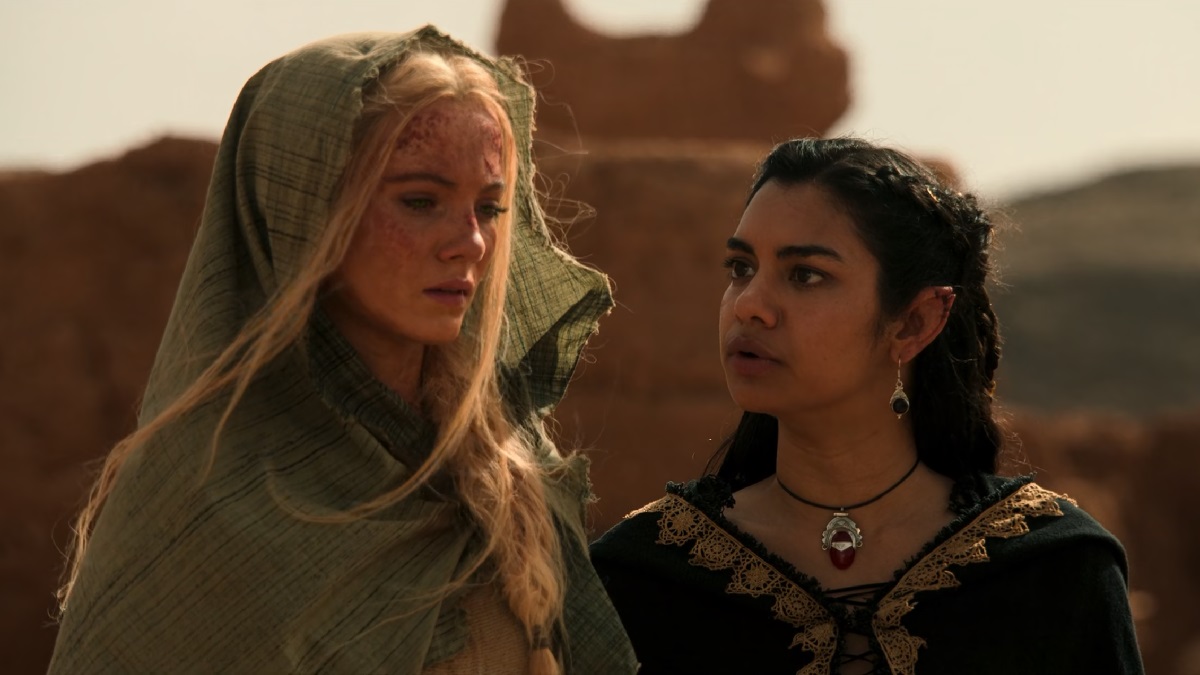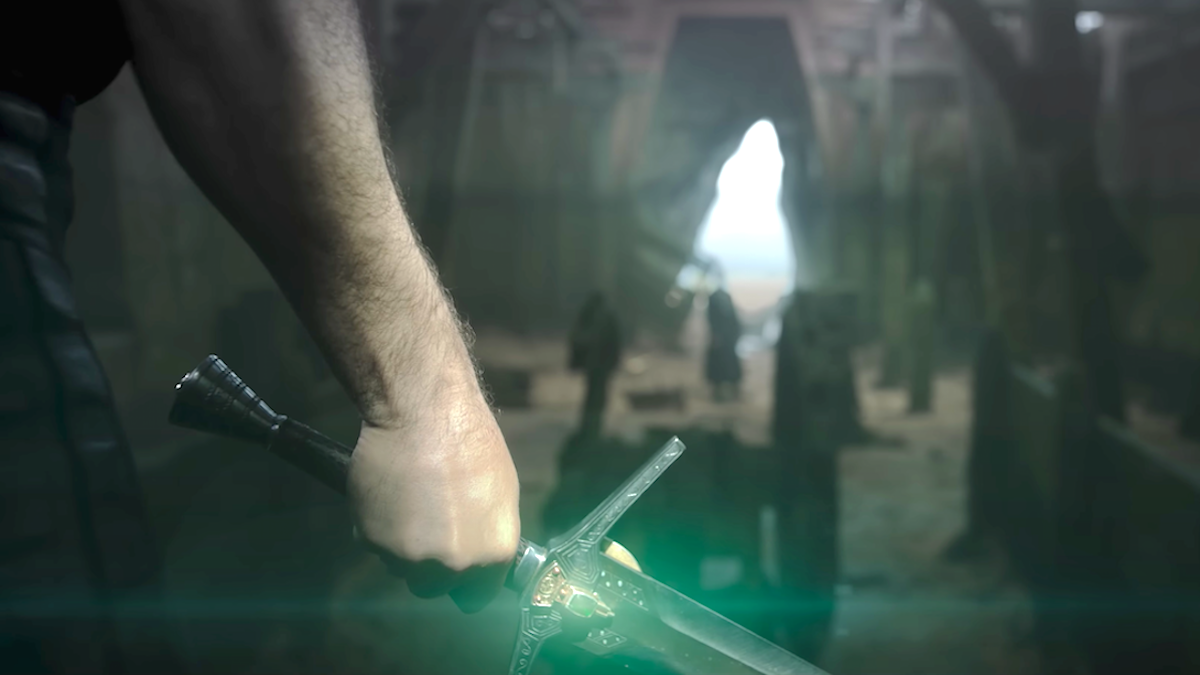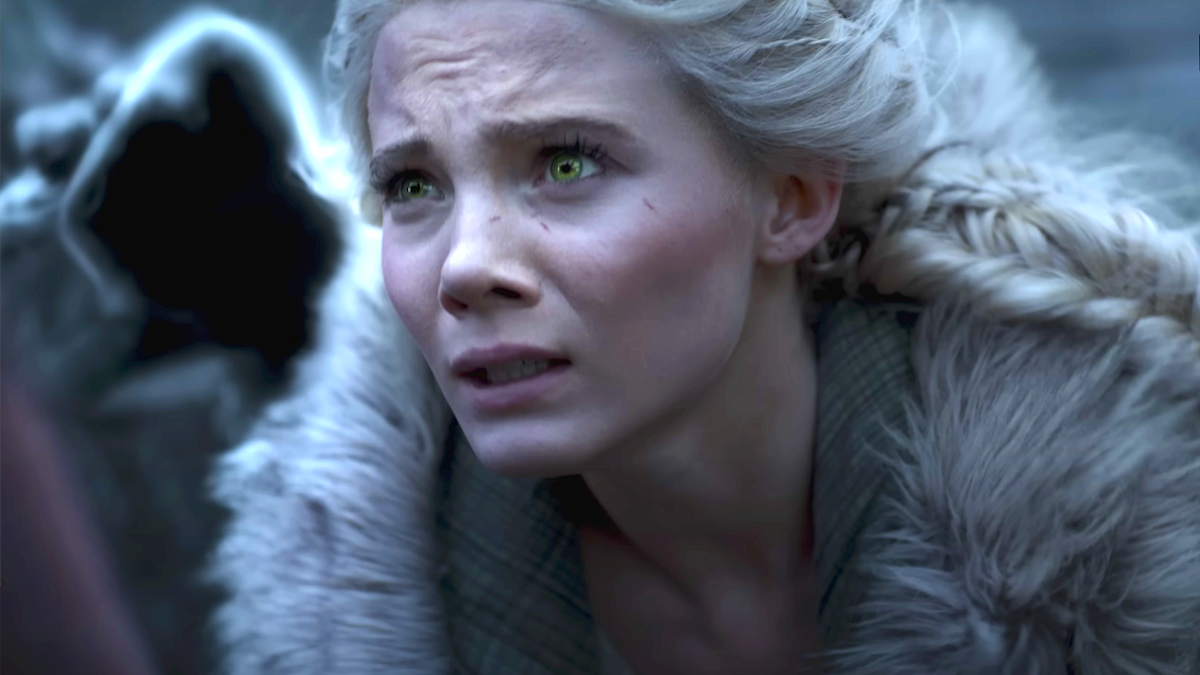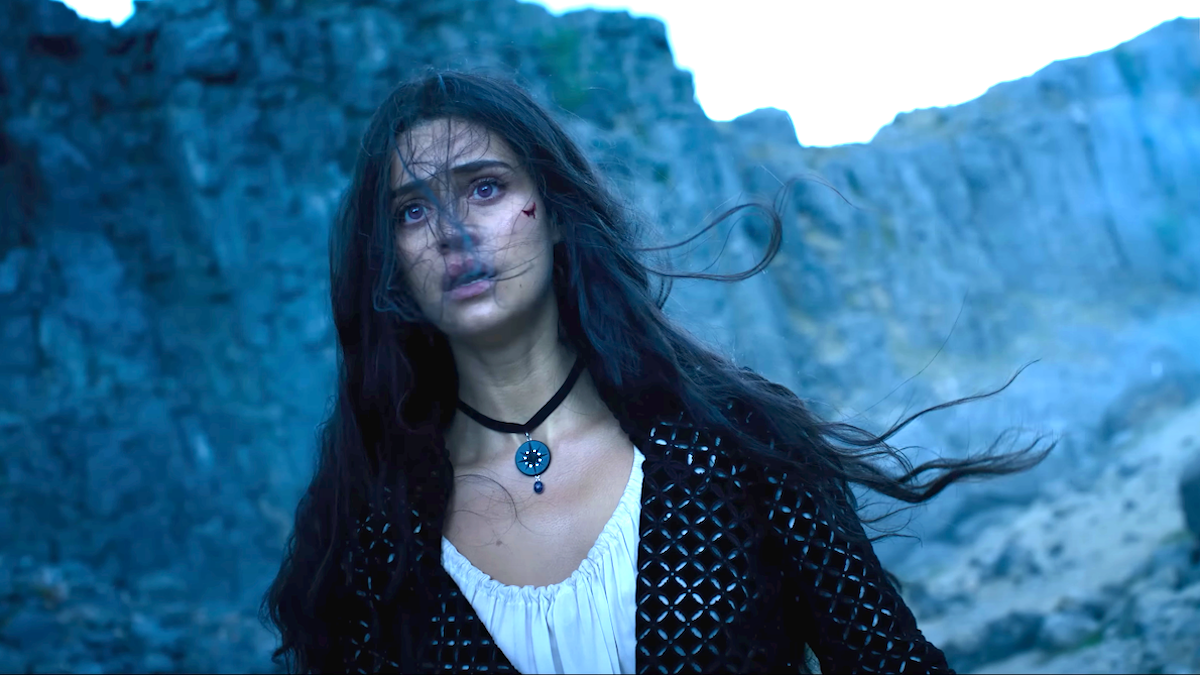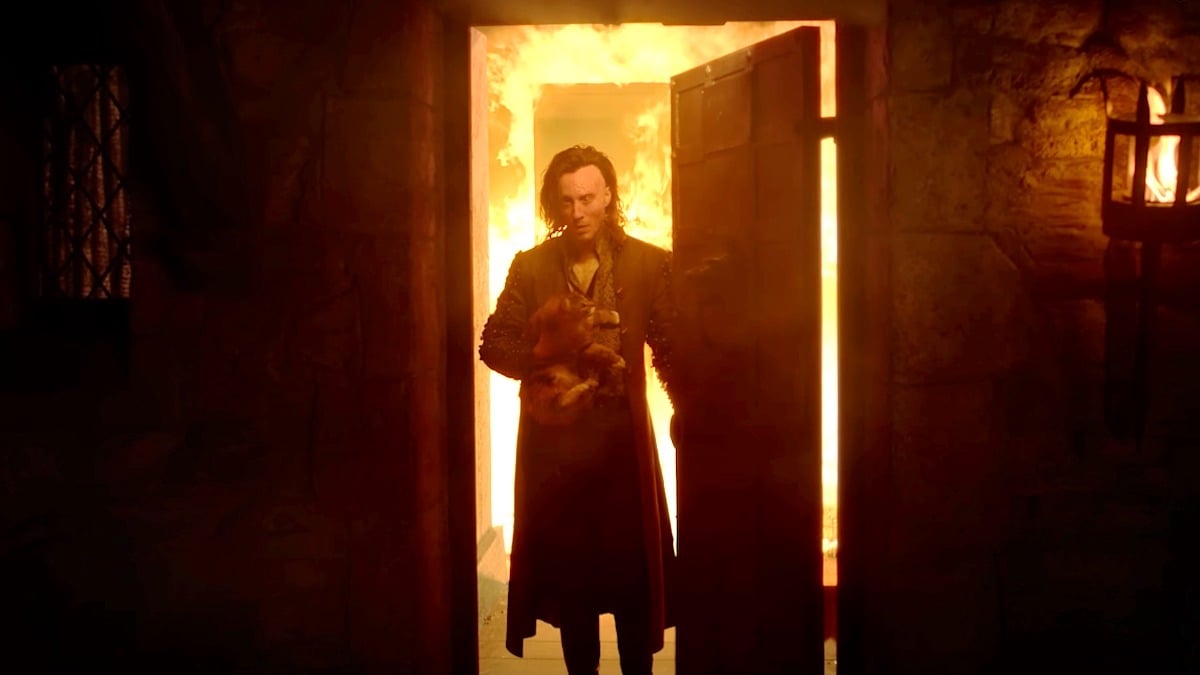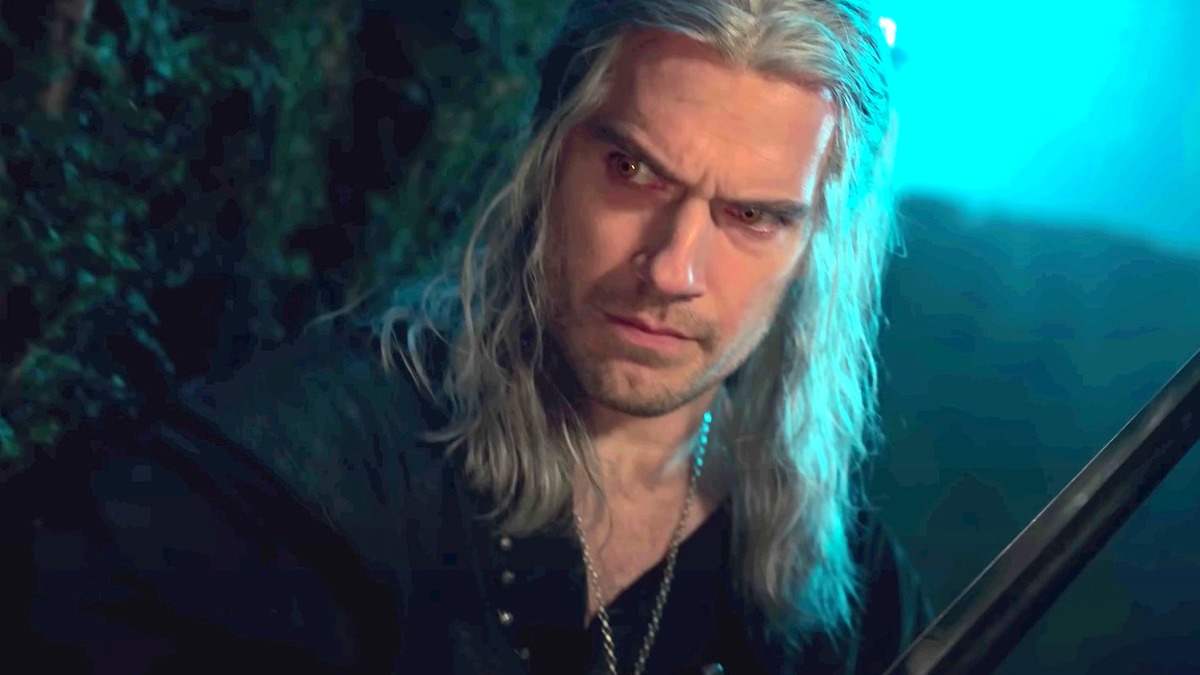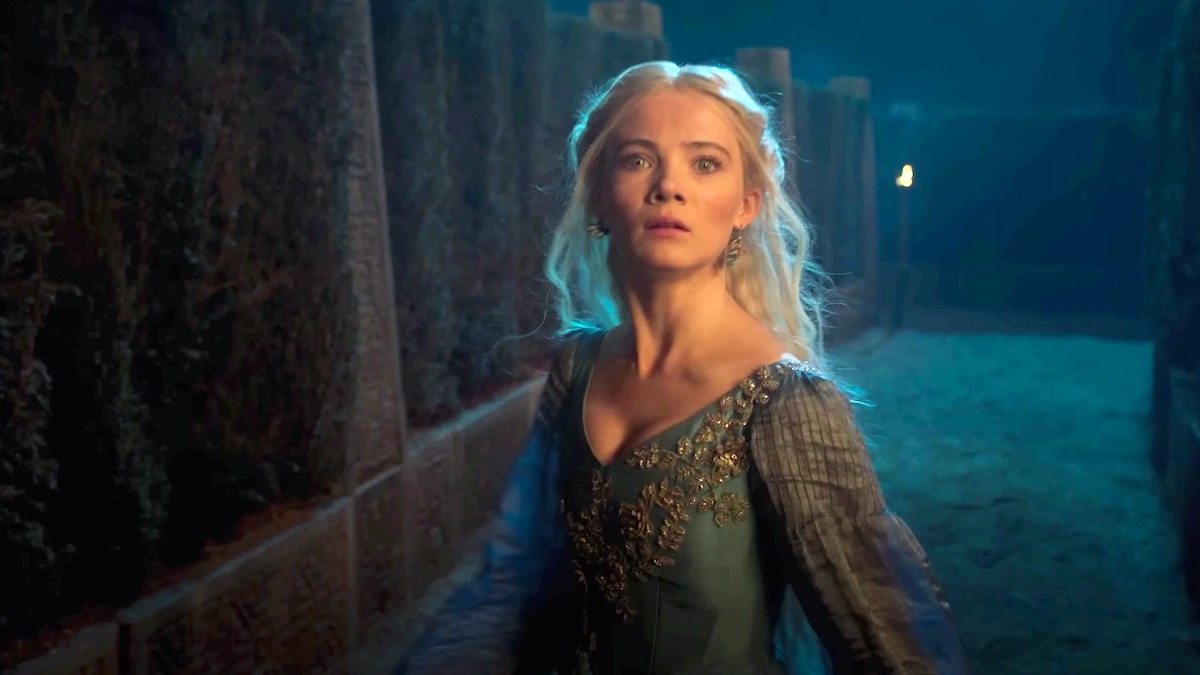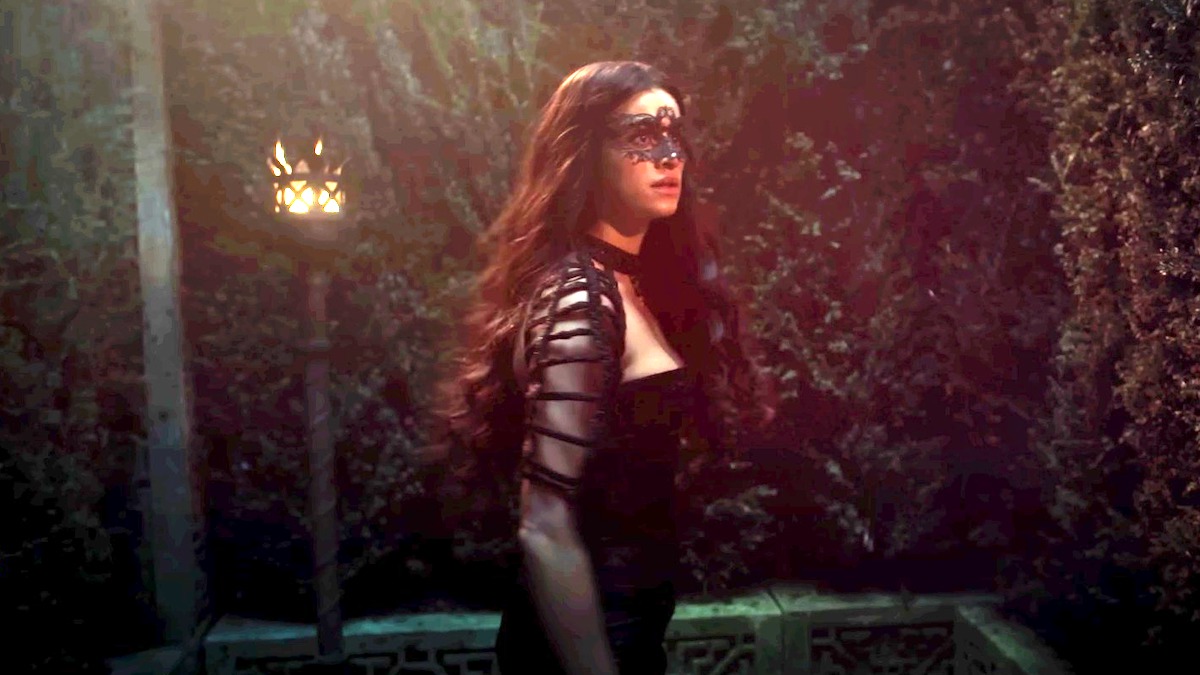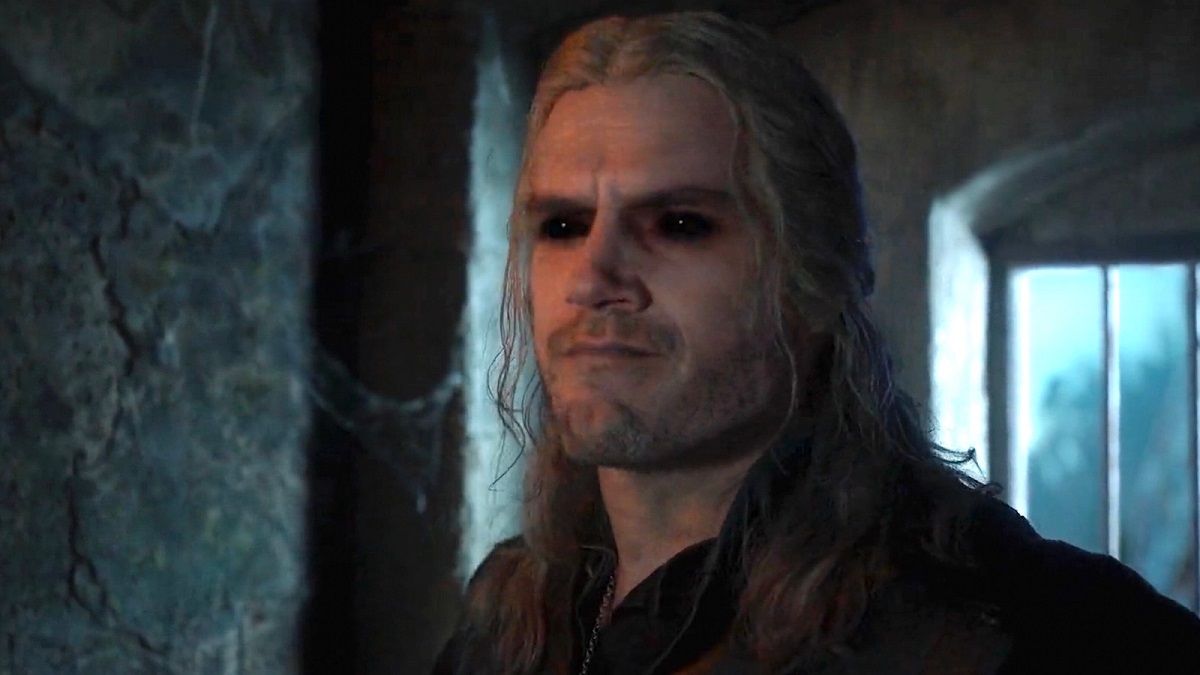The following article contains minor spoilers for The Witcher season 3 finale.
Falka is a name that The Witcher fans have often heard in passing, whether it be in CD Projekt’s video game trilogy or Netflix’s live-action adaptation. She also appears in the third season to guide Ciri towards unlocking her powers, so what do Andrzej Sapkowski’s books tell us about this figure of legend and how does she tie into the bigger narrative?
The remaining three episodes in season 3 premiered on Netflix today and essentially thrust our young heroine into a world of danger and uncertainty. Burdened by her control over time and space, with Elven blood flowing through her veins, Ciri now has the power to change the fate of the world, to serve both as its potential destroyer or ultimate savior. And behind all of these conundrums is one of the most controversial characters in the history of the Continent.
Falka appears to Ciri in her visions, to guide her toward unlocking her powers and finding her path in life. By the end of season 3, Ciri even adopts her name when the Rats rescue her, leaving Cirilla Fiona Ellen Riannon behind for the time being. But who is this Falka and what is her importance?
Falka’s rebellion and the rise of Bloody Falka
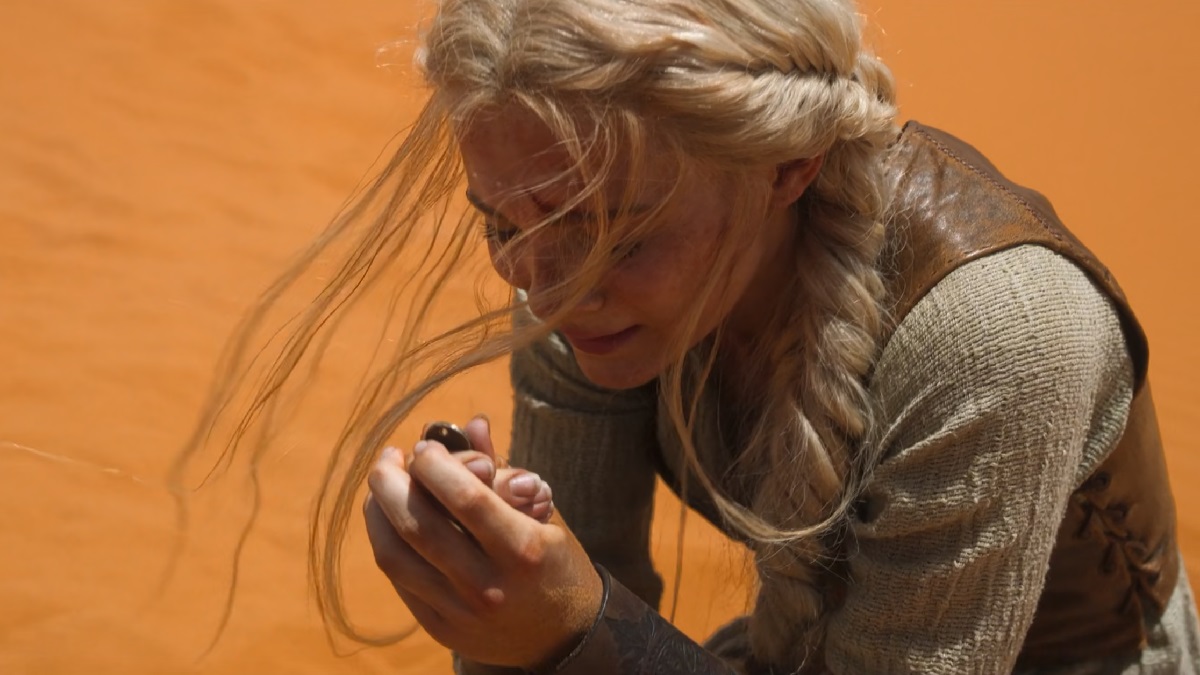
One hundred years before the events of The Last Wish, Falka was born into the Redanian royal family as the daughter of King Vridank and his wife Beatrix of Kovir. When Vridank met Cerro, who would become his second queen, she sent Falka and her mother back to Kovir. Falka swore vengeance and came back some 25 years later to instigate a bloody rebellion.
During that period, Falka killed her father, her two half-brothers, and even Cerro. Such was the devastation she wrought that the streets of Redania ran with blood, thus giving her the title of Bloody Falka. In The Witcher series by Netflix, Falka reveals that she purposefully cut her ears to look like an elf, further embellishing the legends that were already sprouting from her name.
Now, you might ask: What does Ciri and her ancestors have to do with Falka? Well, it all goes back to Lara Dorren, the person you saw in the final moments of season 2. Lara was an elven sorceress who fell in love with a human mage. Both she and her lover, Cregennan of Lod, were prosecuted by the people of the time and ultimately succumbed to a tragic fate. The humans killed Cregennan, while Lara had to run away and give birth to a daughter under dire circumstances.
She died shortly after but made sure that Queen Cerro would take her daughter in as one of her own. Cerro named the girl Riannon and raised her as a Redanian princess. When Falka began her rebellion, Riannon was married to Goidemar of Temeria. Sometime during the riots, a pregnant Riannon is captured by Falka’s men. She gives birth to twins, whom she names Fiona and Amavet.
Riannon went mad after giving birth in prison, but here’s where things get really interesting. Falka was also pregnant at the time, and after giving birth, she gave that child — named Adela — to Riannon to protect. When Goidemar marched to Houtborg Castle and freed Riannon, she wasn’t sure which one of her children was Adela and not her own, so she decided to treat them all as if they were from her own womb. Adela and Amavet died as infants, but Fiona would grow to marry the king of Cintra, Coram the Second.
And thus the line of Lara Dorren, carrying the Elder Blood, continued to flourish in Cintra, with Ciri and her mother Pavetta being the latest in that line to inherit Dorren’s special powers. The detectives Fenn and Codringher later dug up information that hinted at Fiona actually being Falka’s child, which would imply that the Elder Blood also ran in the veins of the Redanian princess, but of course, there’s no way to confirm those findings without running into historical discrepancies.
We don’t know whether Falka and Ciri are related by blood (and most fans seem to have reached the consensus that Fiona was indeed Riannon’s child and from the line of Lara Dorren) but even if that’s not the case, their fates have been intertwined by more than mere chance, not to mention that Ciri also finds herself in the peculiar position of being a conduit for change, just as Falka was in her own time.

